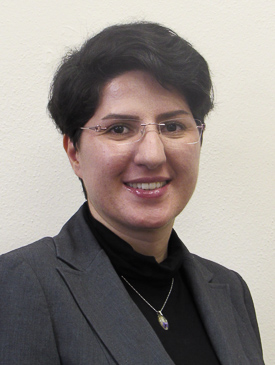Ghatrehsamani is an agricultural engineering specialist for MU Extension in Johnson County.

Shirin Ghatrehsamani, left, with other MU Agriculture and Environment Extension team members at a demonstration of drone applications at a University of Central Missouri farm.
What do you do in your current role with the University of Missouri?
Extension plays a key role in disseminating research to individuals across Missouri so they can in turn make sound agricultural decisions for their operation. As an extension specialist of agricultural technology, my main responsibility is to inform producers, farmers, ranchers and researchers with various levels of knowledge about up-to-date technologies and research. This education leads to agricultural efficiency and sustainability, which increases profits while reducing our environmental footprint.
How long have you worked in this position?
I joined the MU Extension team in January 2020. This is my second of many more years to go.
What is your favorite part about the work you do?

Shirin Ghatrehsamani.
I feel MU Extension is the best place to apply my engineering skills to meet real-world challenges. I get to provide beneficial material to Missourians working within the agricultural community. Additionally, I am a lifelong learner myself, and with this position I learn new things every day that I then get to take to the communities I serve.
How are you helping MU Agriculture and Environment Extension reach our #2xAg2030 goal?
To help us reach our #2xAg2030 goals, I am thinking outside of the box to provide innovative technological designs and applications for the ag industry. From there I will work with Missourians to establish sustainable agricultural systems throughout the state.
What is something your CAFNR and MU Extension teammates may not know about you?
After completing my undergraduate degree, my first job was a technical expert at an automotive plant in Iran. As a young woman in a patriarchal society, I found myself in a work environment consisting almost exclusively of older and socially conservative men.
For a long time, my co-workers there did not take my engineering-related advice seriously. They could not imagine that a woman could possibly understand or solve even the simplest mechanical problem. So, they ignored my advice.
Finally, after working with them for months, they admitted that my solutions were both well-informed and viable. Though difficult, I helped them overcome deeply ingrained prejudices and stereotypes about women. We all learned how to collaborate better, solve practical problems together, and in doing so brought much-needed social progress to a socially backward work environment. And it is with that experience that I have the confidence to excel as an agricultural engineering specialist with MU Extension.
Writer: Ashley Craft